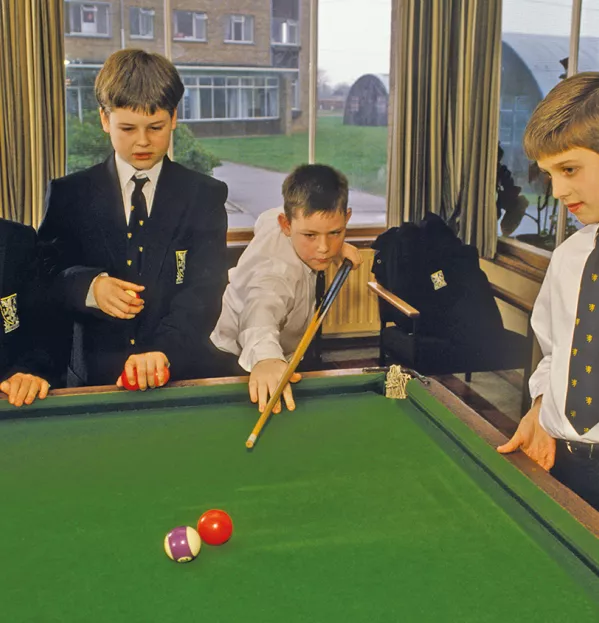
‘Low aspirations’ scupper boarding school trial

A multimillion-pound project that aimed to “break the cycle” of unfulfilled potential for vulnerable children by sending them to boarding school has been abandoned because of an unwillingness among local authorities to take part.
The government-backed scheme would have involved free places at independent and state boarding schools going to an initial cohort of 150 11-year-olds considered to be at risk of “poor social and emotional outcomes” owing to family difficulties.
It was designed to save public money in the long term by avoiding the need for expensive local authority care for vulnerable children.
But Buttle UK, the charity leading the project, said it was unable to proceed because local authorities were not willing to refer young people who could benefit.
It claims this is partly owing to social workers’ low aspirations for the children involved. Those taking part would have been able to stay at the schools during term-time for up to seven years under the scheme, which was backed with £410,000 of Department for Education money.
But, after spending 18 months discussing the project with local authorities, the charity has revealed this week that only five pupils have been put forward for the trial.
‘Ideological’ block
Gerri McAndrew, chief executive of Buttle, told TES: “There’s an ideology that people think that boarding isn’t right for these children. I think people don’t have the same aspirations for these children as they might for others.
“There’s a concern about what happens to children in the holidays when they’re not at school, there are concerns that the schools won’t cope with children with some of the difficult behaviours,” said Ms McAndrew, a former assistant director of social services at Camden Council.
She added: “All of that is based on an assumption. Not many social workers have actually visited a boarding school, so there’s a real lack of knowledge about boarding schools.”
Maris Stratulis, England manager at the British Association of Social Workers, said: “Schools have a significant role to play in the wellbeing, educational attainment and safeguarding of children on a child protection plan, but that does not necessarily have to involve taking a child out of the family environment.”
The concerns are based on assumptions. There’s a lack of knowledge about boarding
Nine boarding schools were prepared to offer places as part of the trial. They included Reed’s School in Surrey, whose former alumni include actor Tom Hardy and tennis player Tim Henman, and Bedales in Hampshire, which has a long list of famous former pupils, including actor Daniel Day-Lewis and singer Lily Allen.
State boarding schools such as Wymondham College in Norfolk, were also on the list.
The private schools were prepared to waive 50 per cent of their annual fees, as well as covering any ad hoc additional costs, such as uniforms, books and field trips.
It was hoped that the trial, which also had separate financial backing from the Education Endowment Foundation (EEF), would provide research evidence on whether boarding could improve educational outcomes for children facing abuse, neglect, family dysfunction or a parental illness or disability.
If the project had been successful, Buttle wanted it to lead to the systematic referral of vulnerable children by local authorities for boarding, as an early intervention measure.
Local authorities were expected to commit £6,000 a year for the duration of a child’s education. While councils are facing enormous financial pressures, the costs of the project were far less than if the children ended up being taken into care, Ms McAndrew said.
A National Audit Office report in 2014 stated that the average annual spend on a foster place was between £29,000 and £33,000, while a residential place costs up to £135,000 a year on average.
‘Radical’ approach
EEF chief executive Sir Kevan Collins said the “radical” approach could have “broken the cycle” of educational underachievement for the children involved.
“There’s an understandable desire to try to do what we can to keep children where they are,” he added. “That can work, but when it doesn’t it can have huge consequences.”
The Local Government Association, which represents local authorities nationally, was asked to comment but did not respond before TES went to press.
Buttle already places vulnerable children at boarding schools (see box), of whom 72 per cent have achieved five A*-Cs at GCSE.
The difference between the charity’s existing projects - which will continue - and the research trial was that the latter was aimed at young people on a child protection plan or who were classed as being “in need”.
Children in need are defined as requiring local authority services to achieve or maintain a reasonable standard of health or development, to prevent significant or further harm to health or development, or who are disabled. In 2015, just 15 per cent of “in need” pupils achieved five A*-C at GCSE, including English and maths.
You need a Tes subscription to read this article
Subscribe now to read this article and get other subscriber-only content:
- Unlimited access to all Tes magazine content
- Exclusive subscriber-only stories
- Award-winning email newsletters
- Unlimited access to all Tes magazine content
- Exclusive subscriber-only stories
- Award-winning email newsletters
You need a subscription to read this article
Subscribe now to read this article and get other subscriber-only content, including:
- Unlimited access to all Tes magazine content
- Exclusive subscriber-only stories
- Award-winning email newsletters
- Unlimited access to all Tes magazine content
- Exclusive subscriber-only stories
- Award-winning email newsletters